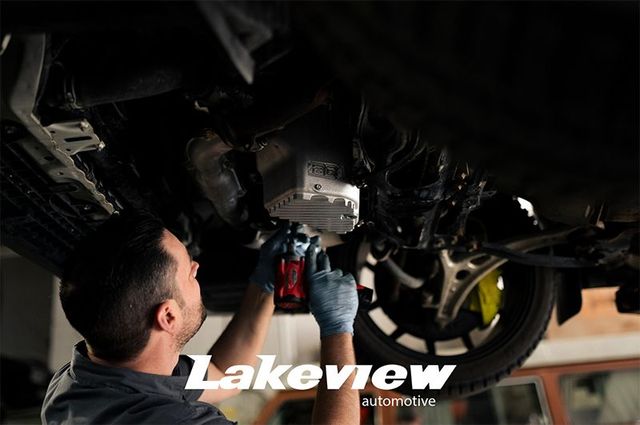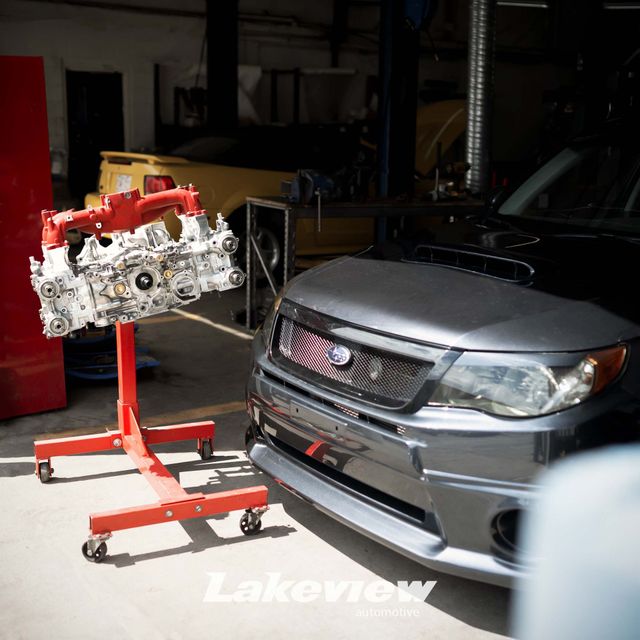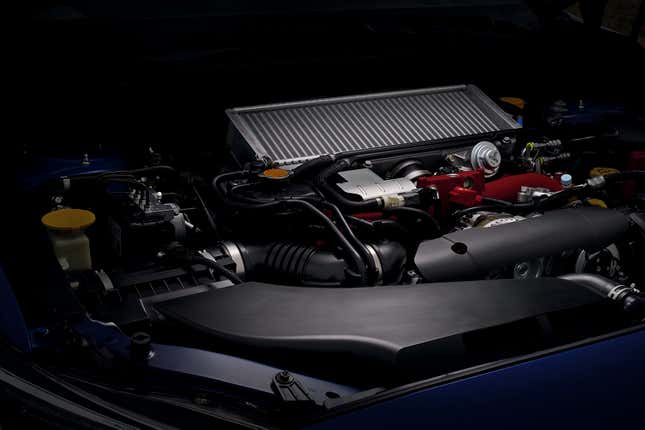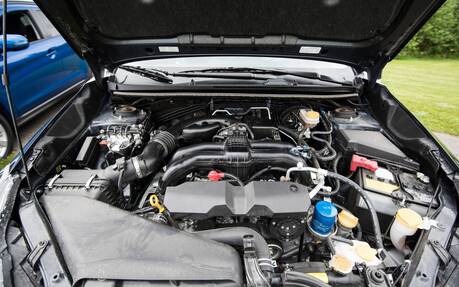The Subaru engines to avoid are the EJ25 and FB20 due to common issues. Subaru has earned a reputation for producing reliable and efficient vehicles.
However, not all of their engines have been trouble-free. When it comes to certain Subaru engines, there are some that you might want to avoid. The EJ25 and FB20 engines have had a history of common issues such as head gasket failure and oil consumption problems.
These issues can lead to costly repairs and potentially leave you stranded on the side of the road. While Subaru has made improvements over the years, it’s important to be aware of the potential pitfalls when considering a vehicle with these engines. We will explore which Subaru engines to avoid and why, helping you make an informed decision when shopping for a Subaru vehicle.

Which Subaru Engines to Avoid
Subaru Engines With Known Reliability Issues
When it comes to Subaru engines, certain models have gained notoriety for their reliability issues. Ensuring that you are well-informed about these potential problems can save you from future headaches and unexpected expenses.
Common Problems With Ej25 Engines
The EJ25 engine, featured in models like the Subaru Forester and Outback, has faced common issues such as blown head gaskets, piston ringland failure, and oil consumption problems. These issues have led to numerous reports of engine failures and costly repairs for Subaru owners.
If you are considering a vehicle with an EJ25 engine, it’s vital to be aware of these potential problems and to have the engine thoroughly inspected by a qualified mechanic before making a purchase. Timely maintenance and vigilant monitoring of oil levels can help mitigate some of the risks associated with this engine.
The Turbulent History Of The Fa20 Engine
The FA20 engine, notably found in the Subaru BRZ and Toyota 86, has encountered its fair share of challenges. Some common issues include valve spring breakage, piston ring failure, and excessive oil consumption. These problems have sparked concerns among owners and garnered attention from automotive enthusiasts and professionals alike.
Prior to investing in a vehicle equipped with the FA20 engine, it is imperative to conduct thorough research and consider the potential long-term implications of these known reliability issues. A comprehensive evaluation by a qualified technician is crucial in determining the overall health and reliability of the engine.

Which Subaru Engines to Avoid
Factors Influencing Engine Reliability
When considering the reliability of Subaru engines, there are several factors that can influence their performance and longevity. By understanding these factors, you can make informed decisions about which Subaru engines to avoid based on your specific needs and circumstances. Let’s delve into the key influencers of engine reliability.
Maintenance And Care
Regular maintenance and proper care are crucial in keeping any engine healthy. Scheduled oil changes, filter replacements, and fluid checks are essential to prevent premature wear and failure. Neglecting basic maintenance can significantly decrease the longevity and reliability of a Subaru engine.
Driving Habits
Driving habits play an integral role in the health of an engine. Aggressive acceleration, high-speed driving, and frequent abrupt braking can put undue stress on the engine, leading to premature wear and decreased reliability. Opting for smooth and gentle driving practices can extend the life of the engine.
Modifications And Aftermarket Parts
While it may be tempting to enhance performance through modifications and aftermarket parts, it’s important to consider the potential impact on engine reliability. Improperly installed or incompatible modifications can place undue strain on the engine, leading to increased wear and potential issues. Careful consideration is necessary when modifying a Subaru engine to maintain its reliability.
Determining The Reliability Of Used Subaru Engines
Determining the reliability of used Subaru engines requires careful consideration to avoid potential issues. By researching the specific engine models and their known problems, buyers can make an informed decision to ensure a dependable choice.
Researching Engine Models And Years
When determining the reliability of used Subaru engines, it’s essential to spend some time researching the different engine models and years available. Not all Subaru engines are created equal, and certain models or years may have a history of issues or common problems. By doing your homework and understanding which engine models to avoid, you can make an informed decision when purchasing a used Subaru.
One way to start your research is by checking online forums and communities dedicated to Subaru owners. These platforms often have discussions and threads where owners talk about their experiences with different engine models and years. Look for any patterns or recurring complaints that indicate potential reliability concerns.
It’s also a good idea to browse through reputable automotive websites that provide detailed information and reviews on Subaru engines. These websites often offer insights into common problems, performance issues, and any recalls or technical service bulletins related to specific engine models and years. Pay close attention to these sources as they can provide valuable information to guide your decision-making process.
Examining Maintenance Records
Another crucial aspect of determining the reliability of a used Subaru engine is examining the maintenance records. Regular maintenance and proper care are crucial for the longevity of any engine, regardless of the make or model. By inspecting the maintenance records, you can gain insight into how well the previous owner maintained the engine.
Start by requesting the service history from the seller or dealership. This should include records of oil changes, manufacturer-recommended maintenance, and any repairs or replacements performed on the engine. Look for evidence of routine maintenance being regularly performed and make sure there are no significant gaps or extended periods between servicing.
Additionally, pay attention to whether the maintenance was conducted at authorized Subaru service centers or reputable independent mechanics. Regular visits to trusted professionals indicate that the engine received the necessary care and attention it requires to stay reliable over time.
In summary, when determining the reliability of a used Subaru engine, rigorous research and examination of maintenance records are vital. By investing time in understanding the different engine models and years to avoid and thoroughly inspecting the maintenance records, you can make an informed decision and have peace of mind when purchasing a used Subaru.
Reliable Subaru Engines For Different Models
Subaru engines are known for their reliability in various models, but some older EJ-series engines have faced issues with head gasket leaks and excessive oil consumption. These models should be approached with caution to ensure a smooth and hassle-free driving experience.
If you’re in the market for a Subaru, you’re probably aware of their reputation for reliability and performance. However, not all Subaru engines are created equal, and there are a few models you might want to avoid if you’re looking for a dependable ride. In this article, we’ll discuss the top choices for Subaru Impreza and the recommended engines for Subaru Outback, so you can make an informed decision when purchasing your next Subaru.Which Subaru Engines to Avoid
Top Choices For Subaru Impreza
When it comes to the Subaru Impreza, there are a few engine options that have proven to be reliable and deliver excellent performance. These engines are known for their durability, efficiency, and power, making them the top choices for Subaru Impreza ownersWhich Subaru Engines to Avoid
Here are the recommended engines for the Subaru Impreza:
- 2.0L H4 engine: This engine offers a balance of power and fuel efficiency, making it a popular choice among Impreza enthusiasts. It provides a smooth ride and ample power for both city driving and highway cruising. Plus, with Subaru’s renowned all-wheel drive system, you can tackle any road condition with confidence.Which Subaru Engines to Avoid
- 2.5L H4 engine: If you’re looking for more power, the 2.5L H4 engine is a great option. It delivers a punchy performance, making it ideal for drivers who want a sporty driving experience. This engine is especially popular among those who enjoy off-road adventures or need extra power for towing.Which Subaru Engines to Avoid
- 2.0L turbocharged engine: For drivers who crave exhilarating speed and acceleration, the 2.0L turbocharged engine is the way to go. It generates impressive horsepower and torque, making your daily commute or weekend drives a thrilling experience. However, keep in mind that turbocharged engines may require more maintenance and care.
These engines have proven to be reliable and offer a great balance of power, efficiency, and durability, making them top choices for Subaru Impreza owners who value performance and peace of mind.Which Subaru Engines to Avoid
Recommended Engines For Subaru Outback
The Subaru Outback is a versatile and rugged SUV that’s perfect for both city driving and outdoor adventures. When it comes to reliable engines for the Outback, Subaru has a few options that have proven to be dependable and well-suited for various driving needs.Which Subaru Engines to Avoid
Consider the following recommended engines for the Subaru Outback:
- 2.5L H4 engine: This engine is the standard option for the Outback and provides a good balance of power and fuel efficiency. It delivers enough performance for everyday driving and offers a smooth and comfortable ride. Whether you’re commuting to work or embarking on a weekend getaway, the 2.5L H4 engine can meet your needs.
- 3.6L H6 engine: If you’re looking for more power and towing capability, the 3.6L H6 engine is an excellent choice. It offers a significant boost in horsepower and torque, allowing you to tackle steep hills or tow heavier loads with ease. Whether you’re hauling supplies for a camping trip or navigating challenging terrains, the 3.6L H6 engine won’t disappoint.
Both engines provide reliable performance and are well-suited for the Subaru Outback’s versatility and ruggedness. Regardless of the engine you choose, the Outback’s all-wheel drive system ensures optimal traction and stability, making it a reliable companion for any journey.Which Subaru Engines to Avoid
In conclusion, choosing a reliable engine for your Subaru is essential for a worry-free driving experience. By considering the top choices for the Subaru Impreza and the recommended engines for the Subaru Outback, you can find the perfect combination of power, efficiency, and durability that meets your specific driving needs.Which Subaru Engines to Avoid
Reliability Upgrades And Modifications
Reliability is a top concern for Subaru enthusiasts looking to upgrade their engines and ensure optimal performance. With the right modifications and aftermarket parts, you can significantly improve the reliability of your Subaru engine. Whether you’re seeking popular upgrades or recommended aftermarket parts, we’ve got you covered.
Popular Upgrades To Improve Engine Reliability
A range of popular upgrades can enhance the reliability of your Subaru engine, minimizing the risk of common issues and maximizing performance. Consider the following upgrades:
- Engine Oil Cooler: Installing an engine oil cooler can help regulate the temperature of the oil, preventing overheating and reducing wear on engine components.Which Subaru Engines to Avoid
- High-Flow Air Intake: Upgrading to a high-flow air intake system improves airflow into the engine, leading to better combustion and power delivery.Which Subaru Engines to Avoid
- Performance Exhaust System: A performance exhaust system enhances the engine’s ability to expel exhaust gases, improving overall efficiency and reducing strain.Which Subaru Engines to Avoid
- Upgraded Cooling System: Investing in an upgraded cooling system, such as a larger radiator or high-capacity fan, helps to keep the engine operating at optimal temperatures, minimizing the risk of overheating.Which Subaru Engines to Avoid
Recommended Aftermarket Parts For Subaru Engines
When it comes to improving engine reliability, aftermarket parts play a crucial role. Here are some recommended options for Subaru engines:
- Performance Spark Plugs: Upgrading to performance spark plugs ensures consistent and reliable ignition, improving fuel combustion and overall engine efficiency.Which Subaru Engines to Avoid
- Upgraded Ignition Coils: High-quality ignition coils provide stronger sparks, leading to improved engine performance and enhanced reliability.Which Subaru Engines to Avoid
- Stainless Steel Braided Brake Lines: Replacing the stock brake lines with stainless steel braided ones enhances braking performance and provides better resistance to heat and wear.Which Subaru Engines to Avoid
- Upgraded Engine Mounts: Upgraded engine mounts help minimize engine movement during acceleration and deceleration, reducing stress on engine components and improving overall reliability.
- Reinforced Timing Belt: Installing a reinforced timing belt reduces the risk of belt failure and minimizes the potential for severe engine damage in the event of a breakage.Which Subaru Engines to Avoid
By implementing these popular upgrades and incorporating recommended aftermarket parts, you can significantly improve the reliability of your Subaru engine. Remember to consult with trusted professionals and thoroughly research each modification to ensure compatibility and optimal results. With these reliability upgrades and modifications, you can enjoy a smooth and dependable driving experience in your Subaru.

Which Subaru Engines to Avoid
Frequently Asked Questions On Which Subaru Engines To Avoid
Are There Any Subaru Engines To Avoid?
Yes, there are a few Subaru engines that have had recurring issues or reliability concerns. It is important to research and stay informed to make an informed decision and avoid potential problems in the future.
Which Subaru Engines Are Known For Issues?
Some Subaru engines that are known for having issues include the 2. 5-liter EJ25 engine, which has had problems with head gasket failure, and the 2. 0-liter FA20 engine, which has experienced issues with excessive oil consumption. It is advisable to consider these factors when choosing a Subaru model.
What Should I Look Out For When Buying A Used Subaru?
When buying a used Subaru, it is important to check for common issues such as head gasket failures, oil consumption, and any signs of overheating. Additionally, having a thorough inspection done by a trusted mechanic can help identify any hidden problems before making a purchase decision.
Conclusion
After considering various factors, it is advisable to avoid Subaru engines with known issues to ensure a smoother driving experience. By making informed decisions and choosing models that have better reliability records, car enthusiasts can avoid potential headaches associated with troublesome engines.
Remember, conducting thorough research and seeking professional advice can save you from unnecessary repair costs and frustration down the road. Happy car hunting!

